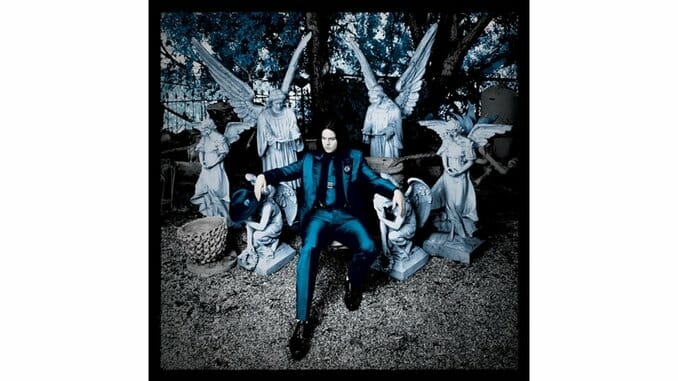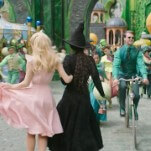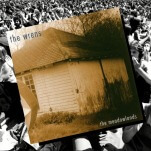Jack White: Lazaretto

You have to wonder when Jack White finds time to do normal things like eat and sleep. It would be more understandable if some of the stuff he wrote, played on or put out was shit or sounded like a halfhearted concession to some kind of contractual obligation, but if the 11 songs on his second solo album Lazaretto are any indication, it’s going to be a long time before White starts running out of steam and ideas.
The sexually charged version of “Three Women” that opens the album puts the listener on notice that as far as Jack White’s concerned, no matter whatever else has changed in the world since Blind Willie McTell wrote the song in 1928, the dynamics between men and women haven’t shifted an inch. The howling grooves, sexual swagger and intemperate logic of the updated lyrics set the listener up for the 10 bitter rants that follow. I don’t know who did Mr. White “so wrong” or what direction her lowdown behavior took, but whatever went down, it obviously bent him completely out of shape. White sounds pissed off. I don’t know how long it would take me to crawl out from under the rock I’d run to if anybody ever wrote a song like these about me.
Apparently, most of the lyrics on Lazaretto came from notes White wrote at the age of 19, half of his life ago, when he was beginning his career singing at coffee houses. It all makes sense when you listen to the album because—literary cleverness aside—the songs ring with the concerns of a young man, just out of adolescence and swelling with love and its discontents. They have a purity that is impossible to recapture once life has sent you around the block a few times and dulled the edges of the senses. It’s easy to see how White couldn’t walk away from poetry this biting and pure, but it must have been a challenge to work with it after such a huge remove to time. Yet surprisingly, whatever rearview mirror White was gazing through when he transformed these lyrics made the objects seem closer than they really were, proving that maybe you can jump in the same river twice. Songs like “Temporary Ground” or “Would You Fight For My Love?”—with its screeching slide guitar and Alice Cooper-on-helium vocals—are so lowdown and hurting, you wonder if maybe Mr. White should look for some serious help to get him over these toxic old wounds before they get the best of him.
-

-

-

-

-

-

-

-

-

-

-

-

-

-

-

-

-

-

-

-

-

-

-

-

-

-

-

-

-

-

-

-

-

-

-

-

-

-

-

-








































